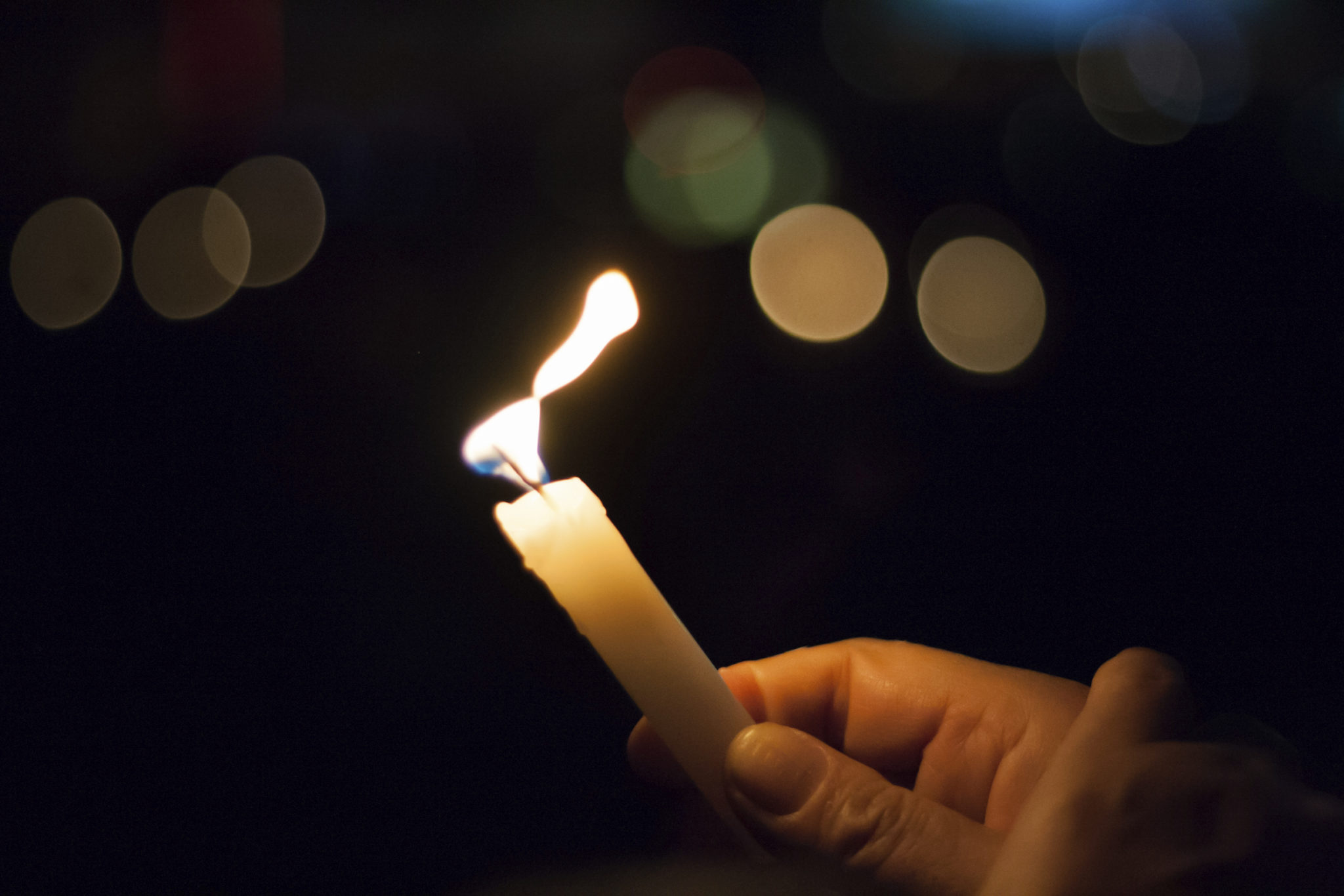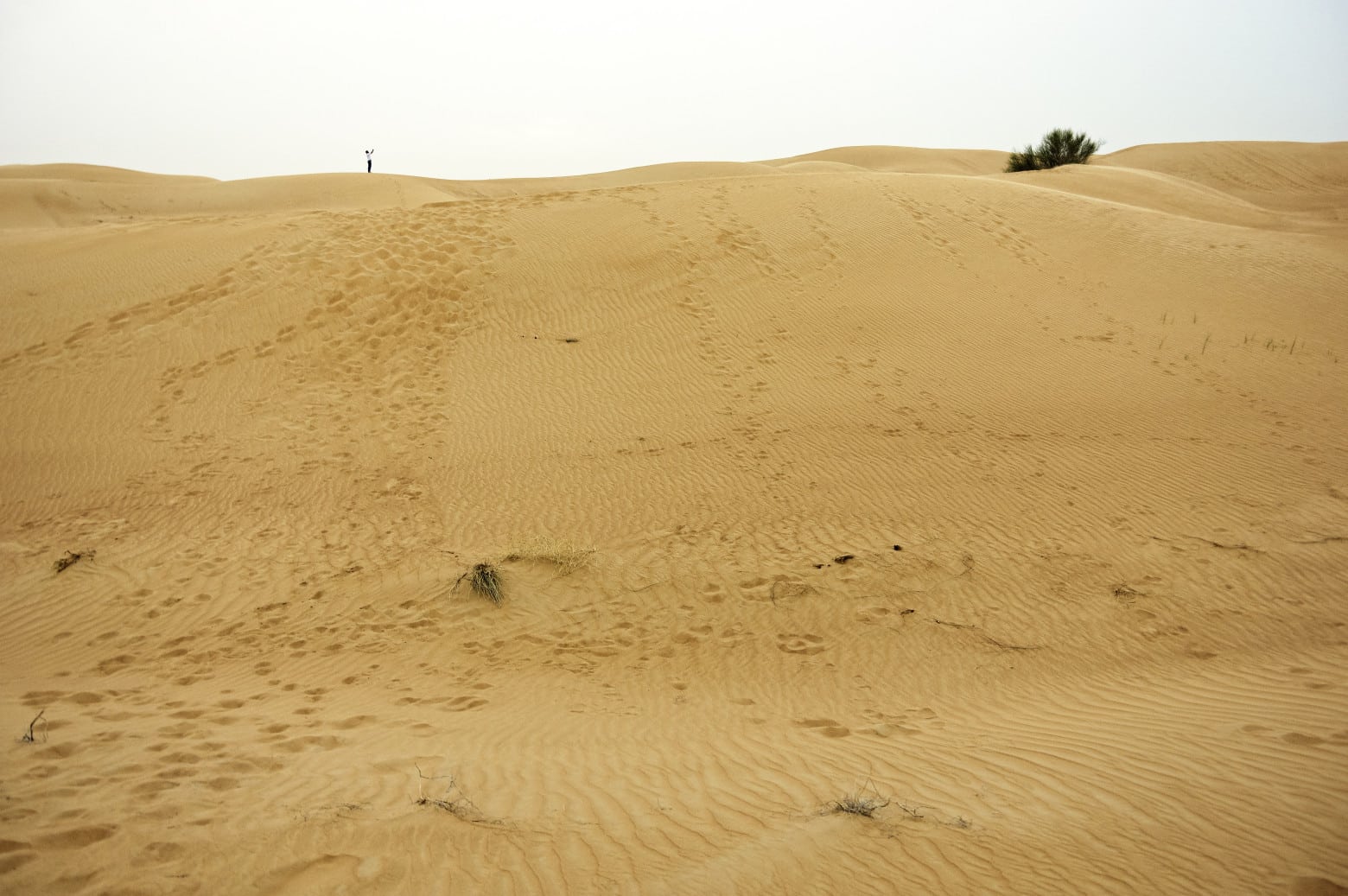As the journey through the wilderness commences in this week’s Torah portion, we are compelled to live with the times and reflect about our own journey today.
Some background first. Following the Exodus from Egypt (Nissan 15 2448), the Jewish people began their 40 year journey – actually a composite of 42 journeys – through the Sinai Wilderness on their way to the Promised Land. 44 days after they left Egypt they arrived at Mt. Sinai (Sivan 1 2448). Following the Giving of Torah (on Sivan 6) they remained at Sinai for nearly a year. In this period they built the ‘portable’ Temple (Mishkan), concluding and erecting it on Nissan 1 2449, as related at the end of the book of Exodus. The Torah then spends 12 chapters (10 in Leviticus and the first two in Numbers) relating the laws that were given and the events that transpired following the Temple’s assembly. 40 days later, on Iyar 20 2449 – almost one year from the day they arrived at Sinai – the journey continues in our weekly Torah portion (Behaalotcho).
Indeed, journeys seem to be a concurrent theme that runs through the entire Bible. The journey of Adam and Eve as they are expelled from Eden. Cain’s wanderings around the world. Noah’s 40 day journey on the ark. The birth of transmigration resulting from the language separation that followed the building of the Tower of Babel.
The journeys only intensify as time goes on. Beginning with G-d’s first command to Abraham, Lech Lecho: Leave your land, your birthplace and the home of your parents and go to the place that I will show you. Isaac’s travels. Jacob’s life is one long journey: First escaping from Esau, Vayeitzei Yaakov, and traveling to Charan. His return 20 years later, only to have to travel once again and descend to Egypt ostensibly because of the great famine. This begins the long and hard journey of Jacob’s children into 210 years of Egyptian bondage.
One would think that after the Egyptian exile the journeys would cease. What do we find? We find that the journey is yet to begin! Following the exile begins of course the most famous journey of all: The Exodus from Egypt. But it doesn’t end there. The rest of the entire Torah – the greater part of Torah – is all about the 40 year journey of the Jewish people through the Sinai wilderness!…
Indeed, almost 4/5 of the Bible is the account of this 40 year journey. 1/5 of the Torah (the Book of Genesis and the first two and a half chapters of Exodus) covers a period of 2448 years (the year when they left Egypt.) The rest of the entire Torah spans merely 40 years – and all those years are one lonely journey through the desert!
What is even more amazing is that the Torah (the five books) concludes before the Jewish people ever enter into the Promised Land! The Land is promised countless times throughout the Torah – to Abraham, Isaac, Jacob and later. Hundreds of references are made to the fact that all these journeys have one purpose: they all lead to the Promised Land. Yet, when it comes down to it, the Torah’s story is only about the journey itself, up to the point that the people reach the east bank of the River Jordan, where Moses passes away, and the Torah ends there.
Only later in the book of Joshua do we read about their entry into the land.
Ruminating on these journeys can surely dizzy your mind. Yet, they also take us on a journey through our minds, our hearts and life experiences. What is the mystery behind our journeys?
Yes, a journey also implies displacement and all the other consequences of movement and relocation. Yet, we are fascinated and even mesmerized by journeys. Just look at the transportation and communications industry we have created; our obsession with all forms of travel – from time travel to wandering day (or night) dreams, from expeditions and voyages to safaris and tours, whether it be by land, water or air (and air waves), we are essentially travelers on a journey called life.
Whether physical or spiritual, the journey always represents mobility, the ability to move from one place to another, the power to grow, the capacity to get out and explore other possibilities.
You can say that a journey is a form of hope. That when we are in the dumps, or just living a life of plain mediocrity and ‘silent desperation,’ we know that we always have the freedom and ability to aspire and reach to broader horizons.
Hopefully our journeys will be restless but peaceful ones; not filled with agony, resulting from loss and trauma. But every journey – no matter the catalyst – is an opportunity for true change and growth in perfecting
A journey represents mobility and flexibility. And something more. It captures the uniquely human personality of constantly striving to better our lives. Animals live in the same habitats and are content with their life situation. Blissful, but boring. Humans are not satisfied (and hopefully will not become satisfied) with animal bliss. Indeed, the journey reflects the very fiber of life itself: Energy. Movement. Constant movement.
Yet there is something more.
According to Jewish theology the concept of Redemption (Geulah) is not just an event but a process. Rabbi Schneur Zalman in his classic Tanya (chapter 37) explains, that the Messianic Era – which means the transformation of the material universe into a vehicle for spiritual and Divine energy – “depends on our actions and service throughout the duration of the galut (exile). For the cause of the reward for a mitzvah is the mitzvah itself,” by performing the mitzvah we imbue the material universe with a flood of Divine light and energy.
All good acts of human beings from the beginning of time are like ‘building blocks’ that, when they all accumulate, create the structure of Redemption: A world infused with recognition of its Higher Purpose, a world that sees materialism not as an end in itself, but a means to G-dliness, a “world filled with Divine knowledge as the waters cover the sea.”
The journey of life – and the journey through history – is not just a circumstantial preparation to reach the destination, but in many ways the end in itself: The journey creates the destination, and by extension is an integral part of the destination. When we understand the true meaning of the journey, and we live by that meaning, then in many ways, the journey is the destination itself.
The Rebbe Yosef Yitzchak writes, that “when the Redemption arrives, we will yearn for the days of galut,” for the challenges and opportunities that these darker days provide us. It is only in times of challenge that we aspire to higher places. Once we reach the destination, we will yearn for the days of aspiration while we were in the process of the journey. True, the fulfillment of our journey is when we reach our destination – and that is what we always aspire to. Yet, at the same time, it is the journey itself, paradoxically, that crafts and generates the destination.
Redemption and all its revelations and rewards are a sum total of our actions during our journey today. At that time we will need to have new and greater challenges to aspire to. But today the challenges are quite apparent. Our focus must be on our journey: what are we doing to reach the destination, how are we moving from the place where we stand and taking steps closer to where we want to reach?
Perhaps, that is why the entire Torah focuses entirely on the journey and the process.
Having is never as pleasurable as wanting. May we want what we have and have what we want, and then want some more. “Who is wealthy? The one who is satisfied with his lot.” May we always have what to aspire to, even as we are content with what we have been blessed with. May we never be fully content, and always have that touch of angst that makes us alive.
As we relive the journey that the people took through the Sinai Desert, let us review our own journey. Let us realize that the journey is as important as the destination and how we travel today determines where we will be tomorrow.
We are relay sprinters that carry the baton passed on to us from generations past. We are the last leg of the journey that began thousands of years ago and has continued in an unbroken chain up to our present day. 3800 years ago Abraham began the journey, 3313 years ago his grandchildren traveled their journey through the wilderness, and today we are called upon to finish the final lap. We have the gift and opportunity to bring the collective journey of all history to its destination, and fuse the two – the journey and the destination – into one.
How awesome is it to be part of a journey that has continued, in an unbroken chain, all these years. How incredible is it to know that we control the destination.
What will your journey be like?








Comments are closed.